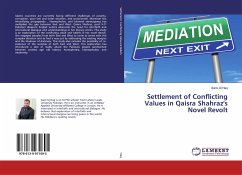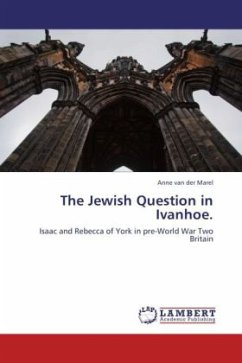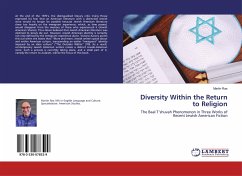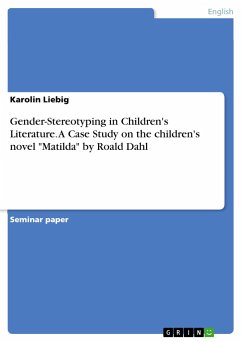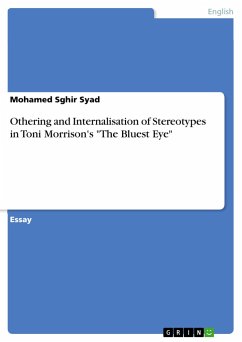
War and Stereotyping in the Jewish and Palestinian Fiction
A Comparison of Leon Uris and Ghassan Kanafani's Diaspora Fiction
Versandkostenfrei!
Versandfertig in 6-10 Tagen
52,99 €
inkl. MwSt.

PAYBACK Punkte
26 °P sammeln!
Author of The Zionist Propaganda in the English Novel from 1817 to 1982 (2010), Dr. Salem here examines sample modern Jewish and Palestinian fiction in exile to pinpoint the relationships between the Jews and the Arabs in terms of the broad forces which contribute to aversion, namely the engines of war, nationalism, colonialism, terrorism and religious absolutism. He browses the catalogues of images in Uris and Kanafani's fiction after examining the cultural and political myths about the Holy Land, as well as the broad aesthetical lines of Uris and Kanafani's fiction in exile, looking at evide...
Author of The Zionist Propaganda in the English Novel from 1817 to 1982 (2010), Dr. Salem here examines sample modern Jewish and Palestinian fiction in exile to pinpoint the relationships between the Jews and the Arabs in terms of the broad forces which contribute to aversion, namely the engines of war, nationalism, colonialism, terrorism and religious absolutism. He browses the catalogues of images in Uris and Kanafani's fiction after examining the cultural and political myths about the Holy Land, as well as the broad aesthetical lines of Uris and Kanafani's fiction in exile, looking at evidence of their ethnic and nationalist consciousness in the longer perspective of historical fiction. He reaches imperative conclusions concerning the evolution of Jewish and Palestinian conception of, and attitude towards, their wars on the Holy Land. The characteristics of Uris'Zionist works as samples of Zionist Holocaust fiction , colonial fiction and propaganda fiction are compared to Kanafani's works that represent Palestinian fiction of Commitment, and anti- colonial fiction. The ideological, didactic, or propagandistic concerns have proven to be aesthetically damaging to fiction.



